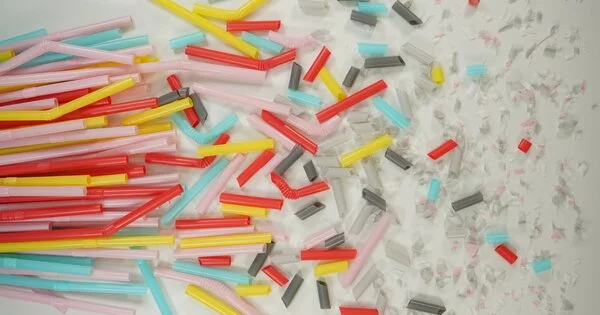Microplastics are plastic particles less than 5 mm in diameter that are mostly invisible to the naked eye. These small pieces of litter floating in our water, soil, and air are not biodegradable and contribute significantly to the spread of marine debris across beaches around the world.
A research team led by Professor Lee Ju-hyuck of the Department of Energy Science and Engineering of DGIST, collaborating with the research team of Korea Institute of Industrial Technology (President Lee Nak-gyu) led by Dr. Cho Han-cheol, developed an eco-friendly microplastic removal technology that can remove micro-to-nano-sized microplastics in the water.
Microplastics are very small plastics (usually less than 5mm) that accumulate in the body and become a threat to humans by disturbing biological functions and so forth. These microplastics are mainly introduced into the ocean and eventually affect humans on the top of the food chain by disrupting the endocrine system of the marine life system. A technology to filter microplastics is needed to minimize the harm.
As TENG generates electrical energy through physical energy, we can manufacture eco-friendly microplastic filters. In addition, since it utilizes the high voltage characteristic of triboelectric energy, it does not require a special external power source, which gives it the advantage that it can be operated without being restricted by location.
However, it is difficult to separate or dispose of microplastics in the water using filters due to their small sizes. In particular, nano-particles, smaller than microns, entail problems that are difficult to overcome, such as filter clogging and environmental pollution by the filter itself when we try to physically remove them using a filter. For this, there is a need for a new and eco-friendly method to overcome these limitations.
Prof. Lee Ju-hyuck’s research team in joint research with Dr. Cho Han-cheol’s team at the Korea Institute of Industrial Technology developed the world’s first eco-friendly power generation device that removes fine particles in the water. It is a collaboration between the triboelectric nagogenerator (TENG) of Professor Lee Ju-hyuck’s research team and the particle removal technology using electrophoresis of Dr. Cho Han-cheol’s team.

As TENG generates electrical energy through physical energy, we can manufacture eco-friendly microplastic filters. In addition, since it utilizes the high voltage characteristic of triboelectric energy, it does not require a special external power source, which gives it the advantage that it can be operated without being restricted by location.
The new porous microstructure-based TENG developed through this study showed more than threefold higher output than the existing TENG. The test of the new TENG showed that the removal rate of micro-sized microplastic particles was 21.4%, about 5.6 times higher than that of the existing TENG, which was recorded at 3.8%. In addition, it was confirmed that this technology can remove micro-sized microplastics and various micro-toxic particles such as nano-sized zinc oxides and silicon dioxides.
Microplastics are a massive environmental crisis, and yet many people are completely unaware of the damage done to both the environment and the body. Prevention is better than cure, so finding practical ways to avoid consuming microplastics rather than constantly detoxing them makes better sense.
















